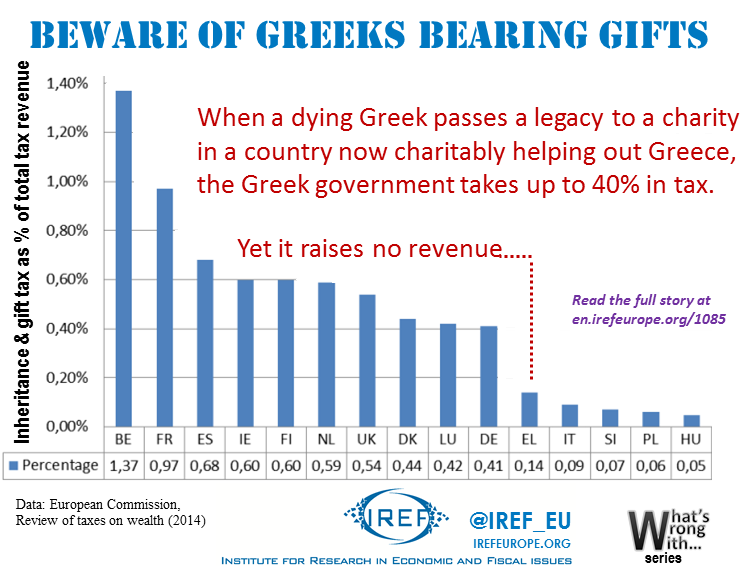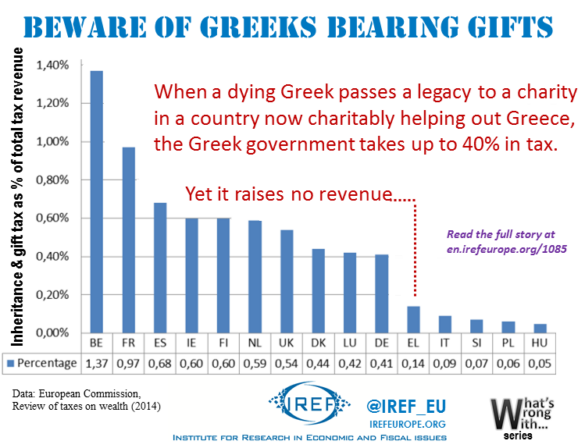Say you want to pass your wealth to others after you die, since you cannot take it with you.
– If you pass it to friends and family, many (18) EU governments will take a hefty portion of it in inheritance tax.
– If you pass it to a charity, most governments won’t charge you tax.
– If you pass it to a charity and you are Greek, the government will still charge you up to 40% tax. Unless the charity happens to be Greek – then you’ll pay less.
This is wrong on so many levels – economic as well as moral. The European Commission has just filed a lawsuit against the Greek government to stop this discrimination of foreign charities. But it needs to go further. Legacies to charities should not be taxed at all, and ideally the whole inheritance tax should be scrapped.
– Charities operate tax-free because they pursue worthy causes, usually similar to those governments say they want to pursue with the tax revenue. Taxing charitable legacies therefore says that governments are better in charity than charities – which they’re not.
– Transferred assets will have been taxed several times during the person’s lifetime. It’s difficult to justify another round.
– Inheritance tax discourages people from trying hard to build up a “nest”. Reduced economic activity hurts everyone else.
– Governments justify inheritance tax as a “fair” tax on the “excessively” rich, to benefit the poor. Yet it’s the poor who usually end up being hurt when they cannot afford to pay the tax when a rich relative passes them a valuable asset.
– Variations in inheritance tax also have a very uncharitable effect on the dying. Plenty of evidence, for example from Sweden or the USA suggest that people will even be willing to die to save on taxes, around the dates at which the tax rate is changed. Governments should never determine the length of people’s lives.

Whatever the general reasons, for Greece its inheritance policy makes even less sense. It encourages emigration of wealthy individuals – undermining Greek tax base even further. It raises effectively no revenue – just 0.14% of total, one of the lowest relative yields of all EU countries imposing the tax. Even the administration may turn out to be more costly than the revenue.
And by targeting charities abroad, the Greek discriminatory policy makes mockery of the large financial help Greece has recently been receiving from abroad, considered by many to be itself an act of charity…




